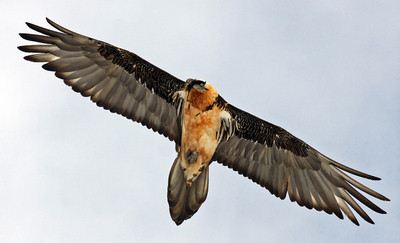Natura 2000 Areas in Greece
 Throughout Europe the 'Natura 2000' network of protected areas, created with the aim of conserving natural habitats, flora and fauna and in particular wild birds, is considered a blessing: Natura 2000 areas constitute an institutional, legal and funding framework which helps local communities and local governments attain a high standard of living through environmental and cultural conservation using democratic methods and without depending on the intentions and plans of central governments.
Throughout Europe the 'Natura 2000' network of protected areas, created with the aim of conserving natural habitats, flora and fauna and in particular wild birds, is considered a blessing: Natura 2000 areas constitute an institutional, legal and funding framework which helps local communities and local governments attain a high standard of living through environmental and cultural conservation using democratic methods and without depending on the intentions and plans of central governments.
Two other useful methodologies/tools are the White Paper on European Governance (2001) and Local Agenda 21, which when combined with a well-functioning Natura 2000 area which has a managing body and a management plan they can bring sustainability and success to local communities. The White Paper on European Governance proposes the following key principles: Openness, Participation, Accountability, Effectiveness and Coherence. Local Agenda 21, a horizontal management system, which is followed by 90% of western European municipalities, offers information, communication and networking of citizens with institutions and NGOs, enabling them to be masters of their lives.
However, in Greece, even before the fiscal crisis, most of the above had proven to be a paper exercise (and not just in Natura areas) and thus the blessing of Natura 2000 turned into a curse.
Local Agenda 21 infrastructures in Greece were well hidden from the public and as a result citizens were kept in the dark when it came to locating vital information, while Greece was also condemned at the European Court for not adequately safeguarding protected areas. The protected area management bodies that existed at least in theory (29 in total, merged down to 14 in early 2013 as a part of government cost cutting) were set up contrary to EU guidelines and were fully controlled by the central government. They did not take into consideration local needs and views, they were not adequately staffed with experts and scientists of all necessary specializations and produced no long-term management plans, just short-term, often meaningless actions. As a result they could not benefit from available European funding, which was also invariably large and complex.
The coup de grace was the failure to produce management and zoning plans in Greek Natura areas which would have allowed the legal continuation and gradual adaptation of legal, existing activities according to the carrying capacity of each zone within the protected area. Local communities got a feeling that suddenly everything was forbidden within the Natura Areas so they treated them as a curse, while illegal activities carried on regardless.
No protected area which has been emptied of traditional inhabitants and activities can guarantee the preservation of wildlife. A truly sustainable model involves the coexistence of people and nature and it is up to local communities and local governments to build this model, the tools certainly exist.
Dimitris Psarras http://phoenix-crete.org
